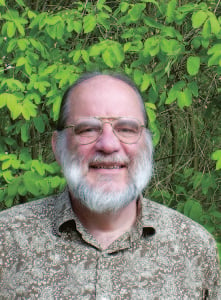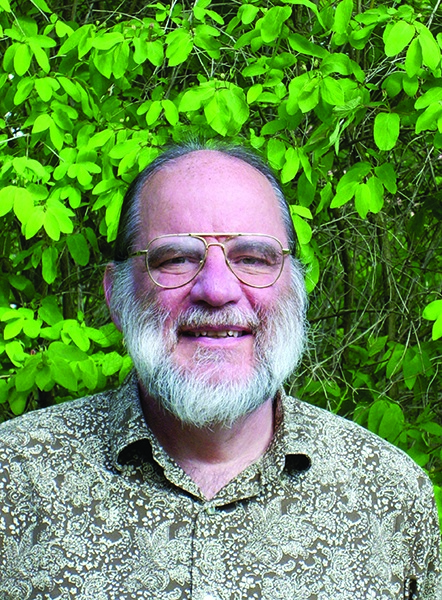From a very early age, Stanford Computer Science Professor Eric Roberts had a ready answer whenever people asked him what he wanted to be when he grew up.
“I always knew that I wanted to be a professor,” Roberts said. “When everyone else wanted to be a fireman, I wanted to be a professor.”

He’s realized his dream. Now one of Stanford’s most prominent professors, he has received several University-level teaching awards, been active in professional organizations dedicated to computer science education and promoted socially responsible use of science and technology.
“My greatest interest lies in drawing people to the field. I have a special interest in broadening it,” he said.
Born to a father who taught political science at the University of Nevada, he grew up saturated in academic intensity. “There were books everywhere in the house,” Roberts remembers, describing a childhood of intellectual vitality.
As early as middle school, Roberts began tinkering with electronic sets and old radios. He became fascinated with electrical engineering and grew to love computing soon after, learning how to program in 1965 — barely a decade after the initial development of the computer. He was 13 at the time.
Then, when Roberts was in high school, an unexpected turn of events planted him firmly on the track of computer science. The space race, the United States’ superpower arms race with the Soviet Union during the Cold War, resulted in the Soviet Union’s launch of Sputnik and the first man into space. Upon losing the technological race, the United States poured a great deal of money into improving science education. Roberts reaped the benefits.
“Universities were given contracts to have special science training programs for high school scientists, and I went to one on computer science after my junior year,” he said. “That was where I really became expert in computing.”
It wasn’t possible to major in computer science during his undergraduate years at Harvard, so Roberts turned to applied mathematics instead. (The first computer science majors at Harvard were there in the ’90s; the first at Stanford was in 1986). In his computer science classes, however, he had the opportunity to witness firsthand some of the earliest developments in the field.
“A lot of times I remember my professors would be telling me about results that today would seem like part of the foundation of the field, but at the time they had just happened,” he said. “It would fly around in the classroom, so it was really being there in the beginning. It was really exciting.”
Now, nearly 30 years later, Roberts has risen through the educational hierarchy himself. He cites his greatest contribution to the field not as any concrete breakthrough — though through the years he has developed an original form of parsing, run the first Dungeons and Dragons game, helped create Karel the Robot, a robot that teaches students how to program, and written four acclaimed textbooks — but instead his contributions to the education of computer science.
“I think a lot about how to get people excited about [computer science], how to teach people about it,” Roberts said. “I’ve been very interested in broadening its exposure to include more women, to include people who don’t ordinarily think about it.”
From 1998 to 2005, for example, Roberts was the principal investigator for the Bermuda Project, a project that built the computer science curriculum for Bermuda’s public high schools.
“Through [the project], we were able to get a lot of the Bermudian public school population into the high-tech industry,” he said. “It was great. It’s had an enormous impact.”
Additionally, in his mission to expand computer science exposure to more women, he mentored Marissa Mayer ’97 M.S. ’99, one of the leading women in computer science. Formerly a Google executive, she was named Yahoo’s new CEO last week.
In a 2010 interview published in “Making it Big in Software: Get the Job. Work the Org. Become Great.” by Sam Lightstone, Mayer cited Roberts as a teacher who had a pivotal effect on her career.
“He’s been a big proponent of women in technology throughout his career, so he sort of scooped me up and really encouraged me,” she said.
In addition to championing computer science exposure to the underrepresented, Roberts has a teaching method some may consider unique. He has taught Stanford’s Introduction to the Humanities, finding connections on how technology affects utopian visions. He and his wife Lauren Rusk, a poet, taught a course together two years ago on writing poetry about science.
“[My father] did the same thing — he would teach political science through novels and plays,” Roberts said. “We have a very interdisciplinary teaching style.”
Ultimately, Roberts finds himself drawn to computer science because of its inherent artistry. In fact, he cites his love for poetry as the source for his attraction to the elegance in programming.
“I will work on a program until it’s just right, until it’s something that I can show to students and use for a model for how they should write their own code,” Roberts said. “It’s challenging, it’s creative, it has an artistic component. It’s like poetry. I love it.”
